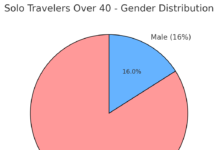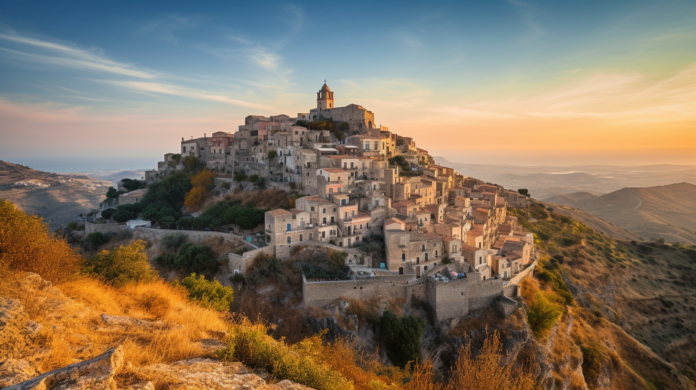
Italy, a country renowned for its stunning landscapes, rich history, and exquisite architecture, has a unique real estate phenomenon known as “one euro houses.” These properties, often in picturesque but neglected towns, are sold for the symbolic price of one euro. This initiative aims to revitalize declining communities, attract new residents, and preserve Italy’s cultural heritage. In this article, we delve into the concept of one euro houses, the application process, renovation challenges, popular regions, and the overall impact on Italy.
The Concept of One Euro Houses
One euro houses, also called “case a un euro” in Italian, are properties sold by municipalities at a nominal price to encourage repopulation and revitalization efforts. These houses are typically located in rural or semi-abandoned areas that have faced depopulation due to urban migration and socioeconomic changes. The initiative offers an affordable opportunity for prospective homeowners to purchase a property and contribute to the revival of these communities.
Eligibility and Application Process
To be eligible for purchasing a one euro house, applicants must fulfill certain criteria established by the respective municipalities. These requirements may include commitments to renovate the property within a specified timeframe, reside in the house as a primary residence, and demonstrate financial stability to cover renovation costs.
The application process varies from town to town, but generally, it involves submitting an application, a project proposal outlining the renovation plans, and relevant documentation to prove eligibility. The municipality then evaluates the applications and selects buyers based on their suitability and commitment to revitalizing the property and the community.
Pros and Cons of Buying a One Euro House
Pros
- Affordability: One euro houses offer an unparalleled opportunity to purchase a property at an incredibly low cost, making homeownership accessible to a wider range of individuals.
- Cultural Heritage: Restoring a one euro house allows homeowners to contribute to the preservation of Italy’s cultural heritage by revitalizing historic buildings and neighborhoods.
- Community Revitalization: By repopulating these areas, new residents bring life and economic activity to communities that have experienced decline.
Cons
- Renovation Costs: While the purchase price may be symbolic, restoring a neglected property can involve significant renovation costs, depending on its condition and desired level of restoration.
- Commitment and Time: Buyers must commit to renovating the property within a specified timeframe and may face challenges in coordinating restoration efforts, particularly for those residing outside of Italy.
Renovation and Restoration Challenges
Renovating a one euro house comes with its own set of challenges. These properties are often in a state of disrepair, requiring substantial investment of time, effort, and money to restore them to a habitable condition. Challenges can include dealing with structural issues, obtaining necessary permits, navigating cultural heritage regulations, and finding skilled local contractors.
Despite these challenges, many homeowners find the restoration journey rewarding, as it allows them to unleash their creativity, learn new skills, and breathe new life into a historic property.
Popular Regions for One Euro Houses
Several regions in Italy have embraced the one euro house initiative, attracting both local and international buyers. Some popular regions include:
- Sicily: The island of Sicily offers numerous one euro houses in charming towns like Gangi and Mussomeli, known for their beautiful landscapes and rich history.
- Abruzzo: Located in central Italy, Abruzzo boasts picturesque towns such as Santo Stefano di Sessanio and Castropignano, offering one euro houses with breathtaking views of the countryside.
- Puglia: In the southern region of Puglia, towns like Otranto and Gallipoli provide opportunities to own a one euro house in a coastal setting, attracting those seeking a combination of history and seaside charm.
Cultural and Economic Impact
The one euro house initiative has a significant cultural and economic impact on the communities involved. By attracting new residents, these towns experience a revival of their social fabric and local economy. The restoration and revitalization efforts preserve architectural heritage, protecting Italy’s cultural legacy for future generations.
Additionally, the influx of homeowners and tourists stimulates local businesses, creates employment opportunities, and enhances the overall quality of life in these areas.
The Future of One Euro Houses
While the one euro house phenomenon has gained considerable attention and popularity, it is important to evaluate its long-term sustainability. Municipalities need to strike a balance between attracting new residents and maintaining the authenticity and cultural identity of these towns. Ongoing support from local authorities, collaboration with residents, and responsible tourism practices will play a vital role in ensuring the success and longevity of this initiative.
Conclusion
Italy’s one euro houses offer a unique opportunity to own a property in a beautiful and historic setting while contributing to the revival of declining communities. The concept combines affordability, cultural preservation, and community revitalization. While the journey of renovating a one euro house can be challenging, the rewards are immense for those seeking to create their own piece of Italian history.
FAQs
- Can anyone purchase a one euro house in Italy?
- Yes, anyone who meets the eligibility criteria set by the respective municipalities can apply to purchase a one euro house.
- Are there additional costs besides the one euro purchase price?
- Yes, buyers should consider renovation costs, taxes, legal fees, and ongoing maintenance expenses.
- Can I rent out my one euro house?
- Some municipalities allow homeowners to rent out their properties after the completion of renovations, but this varies depending on local regulations.
- What happens if I fail to renovate the house within the specified timeframe?
- Municipalities typically have provisions in place to ensure compliance, which may include penalties or the repossession of the property.
- Are there any restrictions on selling a one euro house after renovation?
- Some municipalities impose restrictions on reselling a one euro house for a certain period to prevent speculative buying. It’s essential to review the specific guidelines.
Reach out too us at [email protected] for more information or to reach some of our 150,000 + social media audience send a message to https://www.instagram.com/theluxurystoryteller/

























